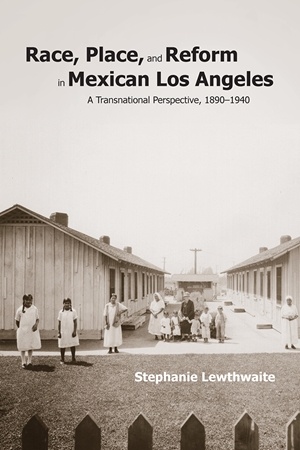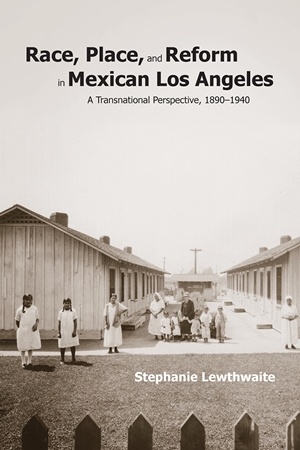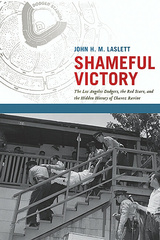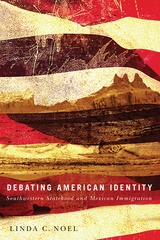Race, Place, and Reform in Mexican Los Angeles
A Transnational Perspective, 1890-1940
The University of Arizona Press
Beginning near the end of the nineteenth century, a generation of reformers set their sights on the growing Mexican community in Los Angeles. Experimenting with a variety of policies on health, housing, education, and labor, these reformers—settlement workers, educationalists, Americanizers, government officials, and employers—attempted to transform the Mexican community with a variety of distinct and often competing agendas.
In Race, Place, and Reform in Mexican Los Angeles, Stephanie Lewthwaite presents evidence from a myriad of sources that these varied agendas of reform consistently supported the creation of racial, ethnic, and cultural differences across Los Angeles. Reformers simultaneously promoted acculturation and racialization, creating a “landscape of difference” that significantly shaped the place and status of Mexican immigrants and Mexican Americans from the Progressive era through the New Deal.
The book journeys across the urban, suburban, and rural spaces of Greater Los Angeles as it moves through time and examines the rural–urban migration of Mexicans on both a local and a transnational scale. Part 1 traverses the world of Progressive reform in urban Los Angeles, exploring the link between the region’s territorial and industrial expansion, early campaigns for social and housing reform, and the emergence of a first-generation Mexican immigrant population. Part 2 documents the shift from official Americanization and assimilation toward nativism and exclusion. Here Lewthwaite examines competing cultures of reform and the challenges to assimilation from Mexican nationalists and American nativists. Part 3 analyzes reform during the New Deal, which spawned the active resistance of second-generation Mexican Americans.
Race, Place, and Reform in Mexican Los Angeles achieves a full, broad, and nuanced account of the various—and often contradictory—efforts to reform the Mexican population of Los Angeles. With a transnational approach grounded in historical context, this book will appeal to students of history, cultural studies, and literary studies
In Race, Place, and Reform in Mexican Los Angeles, Stephanie Lewthwaite presents evidence from a myriad of sources that these varied agendas of reform consistently supported the creation of racial, ethnic, and cultural differences across Los Angeles. Reformers simultaneously promoted acculturation and racialization, creating a “landscape of difference” that significantly shaped the place and status of Mexican immigrants and Mexican Americans from the Progressive era through the New Deal.
The book journeys across the urban, suburban, and rural spaces of Greater Los Angeles as it moves through time and examines the rural–urban migration of Mexicans on both a local and a transnational scale. Part 1 traverses the world of Progressive reform in urban Los Angeles, exploring the link between the region’s territorial and industrial expansion, early campaigns for social and housing reform, and the emergence of a first-generation Mexican immigrant population. Part 2 documents the shift from official Americanization and assimilation toward nativism and exclusion. Here Lewthwaite examines competing cultures of reform and the challenges to assimilation from Mexican nationalists and American nativists. Part 3 analyzes reform during the New Deal, which spawned the active resistance of second-generation Mexican Americans.
Race, Place, and Reform in Mexican Los Angeles achieves a full, broad, and nuanced account of the various—and often contradictory—efforts to reform the Mexican population of Los Angeles. With a transnational approach grounded in historical context, this book will appeal to students of history, cultural studies, and literary studies
‘A number of books have chapters on the efforts to reform the Mexicans of Los Angeles. None, though, compare to this book in depth of understanding and knowledge of the reformers, change over time in the reform efforts, the nuances of their construction of Mexicans as a racial/ethnic type, and the varieties of the reformers’ specific programs.’ —Douglas Monroy, author of The Borders Within: Encounters Between Mexico and the U.S.
Stephanie Lewthwaite is a lecturer in American history at the University of Nottingham’s School of American and Canadian Studies.
Acknowledgments
Introduction
Part 1: Documenting a New Urbanism
1. Settlement Women and the “Courts of Sonoratown,” 1894–1906
2. “Writing Reform”: The Sonoratown Anthologies
3. The Better City: Progressives, Housing, and the Evolution of a “Mexican” Problem
Part 2: From Americanization to Repatriation
4. “Reading Mexico,” Making Americans: Immigrant Education during the Era of Americanization
5. The Iconography of the “Mexican” Slum: Plague, Housing, and Documentary Photography
6. Landscapes of Labor: Reforming the Camp and Colonia
Part 3: New Deal or Old Deal?
7. Race, Pastoralism, and Rural Rehabilitation
8. The “Mexican” Slum Revisited: The Case of Public Housing
9. Intercultural Programs for Reform under the Good Neighbor Policy
Conclusion
Notes
Bibliography
Index







